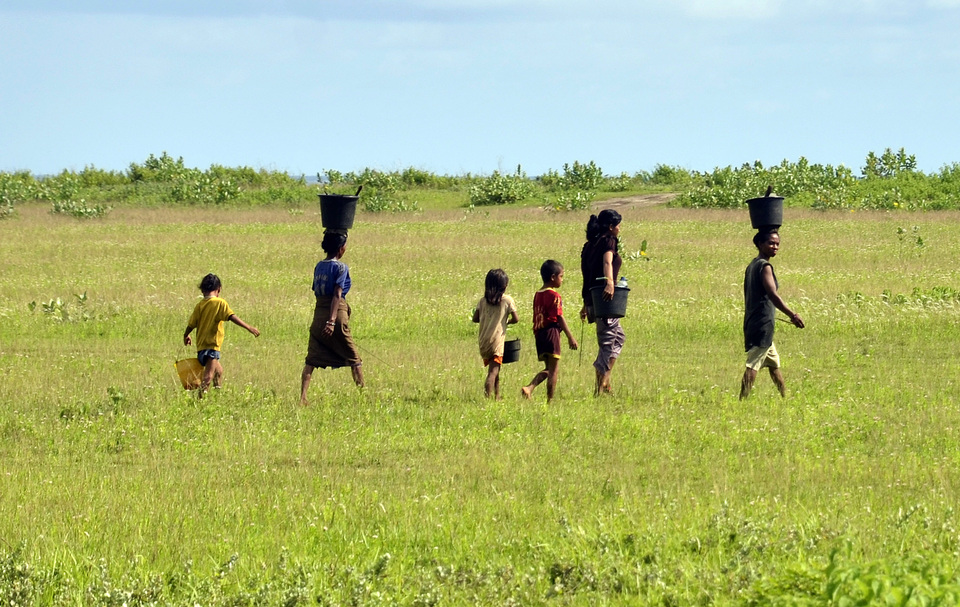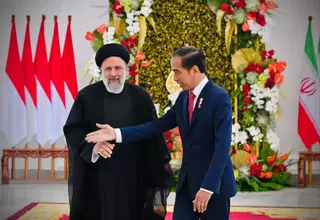To improve Indonesia’s economy, President Joko "Jokowi" Widodo has made infrastructure development — the building of roads, ports, power plants and other public utility services — his main agenda item since being elected two years ago.
From Aceh to Papua, infrastructure projects in the Indonesian archipelago are being accelerated.
Economists support Widodo’s infrastructure agenda. But amid the flurry of land acquisition, ground-breaking and construction, the people who have to give up the land they occupy to make way for the projects have very little power to ensure their livelihoods are secure.
Human Cost
Land acquisition is the most challenging phase of infrastructure development. Those who have to relocate are often poorly compensated. In some cases they don’t receive any compensation at all.
These people may have to move to places far from public services and economic centers. They lose sources of livelihood and struggle to adapt in new social environments.
Studies have revealed that forced land acquisitions in Indonesia have led to conflicts and loss of income of displaced persons.
In one project implemented under Suharto’s New Order regime, displaced persons lost around 50 percent of their income even after receiving cash compensation. In today’s post-Suharto era, the situation is almost unchanged.
‘Take it or Leave it’
Indonesia does have laws and regulations that are intended to protect people affected by land acquisitions.
But these laws and regulations do not ensure transparency in land acquisition processes. Under these laws, affected people also have very little room to negotiate for fair compensation.
Developers are required to hold meetings with affected communities. But these forums have become a mere formality. Affected persons often cannot negotiate for their preferred compensation in these meetings because developers have set the type and amount of compensation from the start.
The law on land acquisition and related regulations require developers to disclose certain information in their land-acquisition plan. They must disclose the purpose of the project, the location, the duration of the land acquisition process and sequence of activities.
But developers are not required to disclose their proposed options for compensation and resettlement. This information is actually very important for affected persons to consider when accepting or rejecting a land acquisition plan.
Affected persons are not given a chance to propose alternative solutions. For example, a community living by the Ciliwung River in Kampung Pulo, Jakarta, had proposed, with the assistance of urban activists and architects, to build an “elevated village.” This would have allowed them to live by the river and the government to continue with its plan to widen the river to accommodate stormwater.
The Jakarta administration rejected the proposal. To mitigate flooding in the Indonesian capital, the administration went ahead with clearing riverside slums and relocating residents to low-cost apartments in East Jakarta.
The “take it or leave it” principle has made the forums a place where affected people can only passively respond to proposed compensation decided by developers for them.
To challenge a developer’s decision, affected persons have to go to the district court. For members of poor affected communities who have little legal knowledge, this can be an intimidating and costly endeavor.
Transparency and Participation
Indonesia should have better regulations to ensure transparency and participation of affected people in every stage of the land-acquisition process.
Affected persons should have the chance to review the amount of compensation in meetings with developers. Project developers must also discuss resettlement plans with affected persons.
Involving affected communities would mean a longer process. But mutual discussion can provide better solutions, meaning projects have positive outcomes for both project developers and affected persons.
Muhammad Faiz Aziz is a researcher at the Indonesian center for law and policy studies, PSHK.























